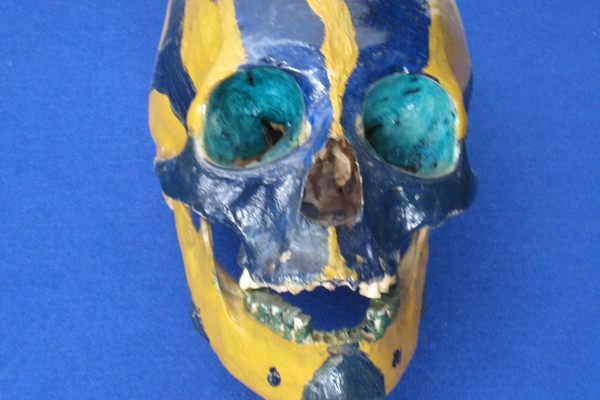Wing Sang Building
The oldest building in Vancouver's Chinatown is now home to one of Canada’s largest contemporary art collections.
The Wing Sang Building on Pender Street is the oldest building in Vancouver’s Chinatown, one of the largest Chinatowns in the Western Hemisphere. A “time capsule” of a building, the original owner and builder became one of the most important citizens of early Vancouver history.
Yip Sang came to Canada to seek his fortune during the late 19th century Yukon gold rush. He never found gold, but along the way he found other work, eventually using his accounting skills for the benefit of the Canadian Pacific Railway. The construction crews numbered many Chinese immigrants like himself, and Yip Sang found a place doing bookkeeping for his bosses and payroll for his fellow immigrants. Turning his experience into a number of thriving businesses, by the time he died in 1927, Yip Sang had helped to create the Chinese Benevolent Association and Chinese Board of Trade, was a Life Governor of the Vancouver General Hospital, and established both a Chinese school and Chinese hospital. Keeping ties back home, he was also a benefactor of the Public Hospital in the Chinese province of Guangdong.
Breaking ground on Pender Street in 1888, Yip Sang needed to house his growing business as well as his three living wives (one having died by the time the building went up), and 23 children. Dating back to a time when Chinese-Canadians living in Vancouver had to obey a curfew, the construction of the building included narrow passageways that residents used in secret after dark. Besides the mystery passageways, the building also has an odd door facing the street – but on the second floor – to this day not entirely explained.
Connecting his building by covered walkway to Market Alley, the bustling retail area that had sprung up behind Pender Street, Yip Sang was able to maintain strong ties to the import/export trade (by then his main business). Market Alley also housed local opium production, the drug being legal in Canada at the time. As businesses around Pender Street and Market Alley grew, Yip Sang expanded his little building along with it. From two stories and one storefront, the building spread both down the block and up to a third story. The expansion included the addition of a schoolroom, the lime-green walls of which are still visible today where it serves as the boardroom for the building’s current owner.
Now enjoying protection under the City of Vancouver Heritage Registry, the Wing Sang Building today houses the Rennie Collection – one of Canada’s largest contemporary art collections, with pieces on loan to museums like the Guggenheim, Pompidou, Tate, and Metropolitan Museum of Art. The Collection includes works by artists ranging from Mona Hatoum and Martin Creed, to Richard Jackson and Lara Favaretto.
Yip Sang maybe couldn’t have guessed that his building would eventually be a landmark, but given his ties to community development, to education and to the history of his adopted home, it’s easy to speculate that the idea would have made him happy.
Know Before You Go
Building is in Vancouver's Chinatown - contact RENNIECOLLECTION.ORG to arrange a tour


















Follow us on Twitter to get the latest on the world's hidden wonders.
Like us on Facebook to get the latest on the world's hidden wonders.
Follow us on Twitter Like us on Facebook